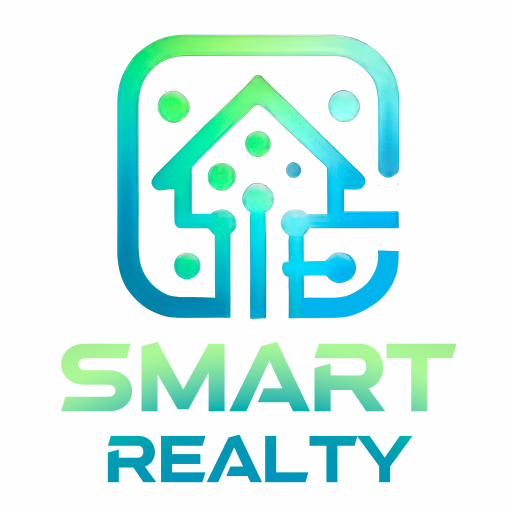AI has revolutionized the real estate industry, particularly in rental income. With advancements in technology, landlords and property managers now have access to AI-powered tools and solutions that streamline processes and increase profits. AI can automate various aspects of property management, such as analyzing trends to set optimal rental prices based on location, amenities, and demand. It also assists with tenant screening, rent collection, and property maintenance. AI has the potential to generate significant cost savings for the real estate sector and revolutionize rental income.
Key Takeaways
- AI in real estate pricing has revolutionized rental income and increased profitability for landlords and property managers.
- Optimal rental prices can be set using AI algorithms that analyze trends, location, amenities, and demand.
- AI streamlines property management tasks such as tenant screening, rent collection, and property maintenance.
- AI has the potential to generate significant cost savings for the real estate sector.
- The integration of AI technology in real estate pricing strategies has the potential to revolutionize rental income.
The Rise of Artificial Intelligence in Real Estate
Artificial Intelligence (AI) has revolutionized the real estate industry, transforming the way properties are bought, sold, and managed. With advanced AI algorithms, real estate professionals can now analyze large datasets to uncover trends and patterns, enabling accurate predictions in pricing.
AI-powered tools play a crucial role in determining the optimal price for a property, taking into account market conditions and property features. By leveraging AI in real estate pricing, predictive rent pricing becomes more precise and efficient.
One of the key benefits of AI in the real estate market is its ability to perform comprehensive market analysis. AI algorithms evaluate factors like location, crime rates, and environmental hazards, providing essential insights for risk assessment.
AI technology also enhances the way real estate data is visualized. Interactive visualizations generated by AI tools offer valuable insights into market trends and property performance, aiding decision-making processes.
| Benefits of AI in Real Estate | Challenges of AI in Real Estate |
|---|---|
|
|
How AI is Revolutionizing Rental Income
AI is revolutionizing rental income through its integration into property management and rental pricing strategies. Landlords and property managers can utilize AI algorithms to optimize rental prices based on factors like seasonality, proximity to amenities, and property condition. Dynamic pricing algorithms analyze the market and property features to determine the best price, while competitive analysis ensures rental prices remain competitive.
“AI algorithms have transformed the way we approach rental pricing. By leveraging real-time market data, we can set rental prices that maximize revenue while staying competitive in the market,” says Sarah Johnson, a real estate expert.
AI also offers demand forecasting capabilities, using historical data and market trends to suggest the most effective pricing strategy. With real-time updates, AI can automatically adjust prices in response to changes in supply and demand, ensuring optimal rental income. This continuous monitoring and adjustment are crucial for staying ahead in a dynamic real estate market.
Benefits of AI-driven Rental Pricing Optimization
Implementing AI-driven rental pricing optimization strategies can bring several benefits to landlords and property managers, including:
- Maximizing Revenue: AI algorithms help determine the optimal rental price, maximizing income by balancing market demand and property features.
- Real Estate Yield Optimization: By utilizing revenue management AI, property managers can improve rental yield and overall profitability.
- Efficient Property Management: AI automates pricing adjustments and continuously monitors market trends, saving time and effort for property managers.
- Competitive Advantage: AI-driven rental pricing strategies ensure competitive rental prices, attracting more prospective tenants.
With AI’s ability to analyze vast amounts of data and provide accurate insights, landlords and property managers can make data-driven decisions to optimize rental income and drive growth in the real estate industry.


Real Estate Yield Comparison
| Property | Traditional Method | AI-driven Method |
|---|---|---|
| Property A | $1,500/month | $1,800/month |
| Property B | $1,200/month | $1,500/month |
| Property C | $2,000/month | $2,300/month |
The table above demonstrates the yield improvement achieved through AI-driven rental pricing optimization. Property managers using AI-powered tools have seen a significant increase in rental income compared to the traditional pricing methods.
By leveraging revenue management AI and real estate yield AI, landlords can ensure their rental prices are optimized to attract tenants, maximize revenue, and ultimately drive success in the competitive real estate market.
Benefits and Challenges of AI in Real Estate
AI technology has revolutionized the real estate industry, offering a range of benefits and challenges for landlords, property managers, and buyers. Here are some key advantages and obstacles to consider:
Benefits of AI in Real Estate
1. Improved efficiency: AI algorithms can quickly analyze vast amounts of data to provide precise property valuations and market predictions. This enables better decision-making, allowing landlords and property managers to optimize rental income.
2. Predictive analytics: By leveraging AI, real estate professionals can gain valuable insights into market trends and property performance. Predictive analytics empower landlords to make data-driven decisions and accurately forecast rental income.
3. Customer support enhancement: AI-powered chatbots provide instant responses to inquiries, ensuring round-the-clock support for potential buyers and renters. These virtual assistants streamline communication and enhance the overall customer experience.
4. Task automation: AI technology automates time-consuming tasks, such as paperwork, appointment booking, and property listings. This saves valuable time for landlords and property managers and reduces the risk of human errors.
5. Enhanced customer experience: AI-backed virtual reality tours allow potential buyers or renters to explore properties remotely. This immersive experience increases engagement and helps clients make more informed decisions.
Challenges of AI in Real Estate
1. Data security: As AI relies on vast amounts of data, ensuring data privacy and security is a primary concern. It is crucial to implement robust cybersecurity measures to protect sensitive information and prevent unauthorized access.
2. Ethical concerns: AI algorithms may inadvertently perpetuate bias in real estate. It is essential to regularly evaluate and monitor AI systems to ensure fair and equitable treatment for all potential buyers and renters.
3. Initial setup and cost: Implementing AI technology in the real estate industry may require significant upfront costs for software, hardware, and training. However, the long-term benefits and potential for increased rental income outweigh the initial investment.
Despite these challenges, the benefits of AI in real estate, such as improved efficiency, predictive analytics, and enhanced customer experience, outweigh the drawbacks. It is vital for real estate professionals to navigate the challenges responsibly and ethically to leverage the full potential of AI technology.
Enhanced Customer Experience
AI technology has revolutionized the customer experience in the real estate industry. With the integration of AI applications, clients now have a seamless interaction with agents and property listings, making renting properties easier and more convenient than ever before.
Personalized Rental Prices
AI algorithms play a significant role in assessing customer preferences and behavior to suggest personalized rental prices. By analyzing data such as location, amenities, and demand, AI-powered tools can intelligently set smart rental rates that cater to the specific needs and budget of each customer. This personalization ensures that customers feel valued and receive the best possible pricing for their desired properties.
Virtual Reality Tours
To further enhance the renting experience, virtual reality technology has been incorporated into the real estate industry. With virtual reality tours, customers can explore properties remotely and gain a realistic sense of space without physically visiting each location. This feature not only saves time but also provides a comprehensive understanding of the property’s layout, allowing customers to make informed decisions.


AI-Powered Chatbots
AI-powered chatbots have become an invaluable tool for customer service in the real estate sector. These intelligent bots offer instant support, providing rental listings information and assisting with lease agreements. By utilizing AI in customer service, real estate businesses can offer round-the-clock assistance, ensuring that customers’ inquiries and concerns are addressed promptly and efficiently.
AI technology has transformed customer experience in the real estate industry by offering personalized rental prices, virtual reality tours, and AI-powered chatbot support.
Overall, the integration of AI technology in the real estate sector has significantly improved the customer experience. From personalized rental prices to virtual reality tours and AI-powered chatbots, these advancements have made the process of renting properties more convenient, efficient, and tailored to individual needs. As the industry continues to embrace AI, customers can expect further enhancements and innovations that will revolutionize their renting experience.
Conclusion
AI-powered rental pricing strategies are revolutionizing the real estate industry, offering landlords and property managers the ability to optimize rental income and maximize profitability. By leveraging AI algorithms for dynamic pricing, competitive analysis, and demand forecasting, property owners can set rental prices that reflect market conditions and property features.
The benefits of AI in real estate are manifold, with increased efficiency being one of the key advantages. AI algorithms can quickly process vast amounts of data, resulting in accurate predictions and informed decision-making. Furthermore, AI enhances the customer experience by offering personalized rental prices based on customer preferences and behavior.
While AI presents immense opportunities for optimizing rental income, it is important to address challenges related to data security and ethics. Safeguarding data and ensuring responsible AI usage will be crucial for building and maintaining trust in AI-powered real estate solutions.
Overall, embracing AI technology unlocks new potentials, enabling landlords and property managers to optimize rental income and drive growth in the real estate industry. By harnessing the power of AI rental pricing strategies, the future of real estate holds promising prospects for landlords, property managers, and tenants alike.
FAQ
What is AI rental pricing?
AI rental pricing refers to the use of artificial intelligence algorithms to determine the optimal rental prices for properties based on factors such as location, amenities, demand, and market conditions.
How does AI optimize rental yield?
AI optimizes rental yield by analyzing trends, setting dynamic rental prices, conducting competitive analysis, and forecasting demand. This helps landlords and property managers maximize rental income and overall profitability.
What benefits does AI offer in real estate pricing?
AI offers benefits such as improved efficiency, accurate predictions, enhanced customer experience, personalized rental prices, and cost savings through automation of tasks like paperwork and appointment booking.
What challenges are associated with AI in real estate?
Challenges include data security concerns and ethical considerations related to the use of AI algorithms for decision-making in real estate. These challenges need to be addressed to ensure responsible and ethical use of AI technology.
How does AI enhance the customer experience in real estate?
AI enhances the customer experience by offering personalized rental prices, providing instant support through chatbots, and enabling virtual reality property tours that allow customers to explore properties remotely and have a realistic sense of space.
How can AI rental pricing strategies maximize income?
AI rental pricing strategies maximize income by dynamically setting rental prices based on market conditions and property features, conducting competitive analysis, and forecasting demand. This helps landlords optimize rental income and overall profitability.

